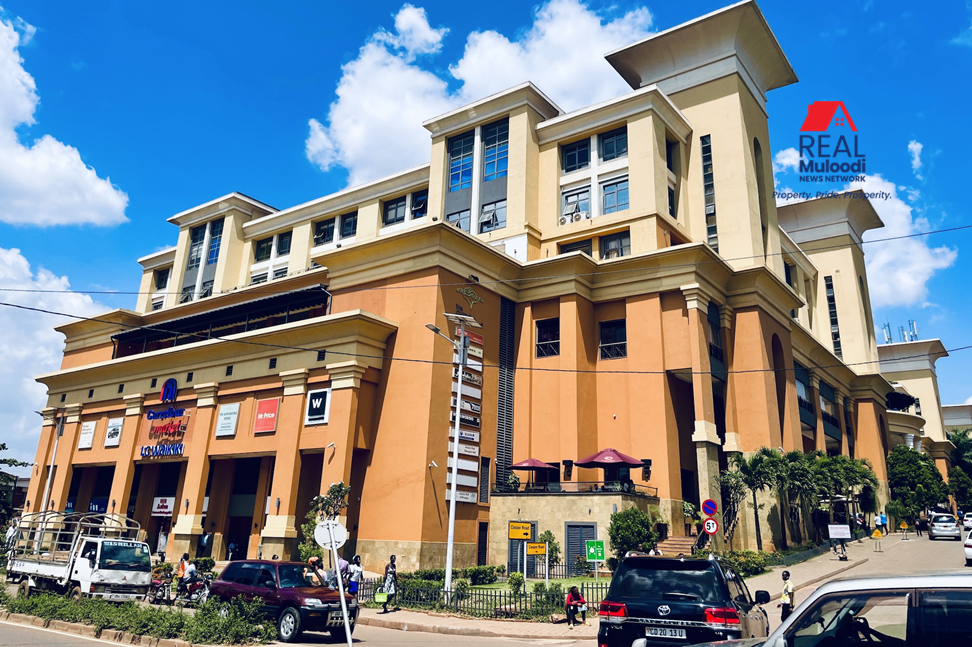UGANDA, Kampala | Real Muloodi News | The property market in Kampala experienced a deceleration in the first quarter of 2024, influenced by various economic conditions.
According to the Bank of Uganda’s April Monetary Policy Statement, factors such as heightened government borrowing, exchange rate depreciation, and a global economic slowdown contributed to this trend.
Knight Frank’s Kampala Property Market Performance Review provided a detailed analysis of the performance across the residential, retail, office, and industrial sectors.
Residential Sector
In the first quarter of 2024, the residential sector saw a significant slowdown. Sales and lettings volumes were notably lower compared to the same period in 2023. This was largely due to an oversupply of housing stock, which created a buyers’ market.
The prolonged marketing periods for properties were a result of hesitant buyers.
“The slow market performance can be attributed to a liquidity squeeze given the tight market conditions, high-interest rates, and high inflation, thus affecting disposable incomes,” stated the report.
Prime areas such as Nakasero, Kololo, Naguru, Mbuya, and Bugolobi remained preferred locations for expatriates.
Additionally, increased development activity was observed in Ntinda, Muyenga, Mutungo, Kyambogo, and Lubowa, as developers expanded the catchment area for prime residential accommodation beyond the traditional central business district (CBD) zones.
Improvement in the quality of housing units in semi-prime and secondary suburbs led to higher rental and sale prices. An emerging dollar-denominated market was noted in areas like Kyanja and Najjera.
Commuter towns within a 30-kilometer radius of Kampala, including Gayaza, Nsangi, Nabbingo, Matugga, Bulenga, Busiika, Kasangati, and Mukono, gained traction. These towns offered growing opportunities for both investors and home buyers.
A new developer, Vaal, entered the market in the first quarter of 2024, offering off-plan sales. Vaal is pioneering high-density developments in prime areas, testing the market with this emerging trend.
Retail Sector
The retail sector showed signs of improvement in the first quarter of 2024. Key performance indicators such as turnover, occupancy, and footfall demonstrated positive growth.
According to the report, annual foot traffic increased by 2%, general retail turnovers rose by 35%, and average occupancies across Knight Frank-managed malls grew by 8.85%.
The retail sector’s performance was bolstered by seasonal shopping events like return-to-school shopping and Valentine’s Day promotions.
New retailers, including Black Drip and Tecno Bellazuri at Arena Mall, were introduced, enhancing the variety of commodities available to shoppers.
The Kampala Flyover Project progressed, improving access to Arena Mall and potentially boosting foot traffic.
The outlook for the retail sector in the second quarter of 2024 remained optimistic, supported by the anticipated expansion of retailers and an overall economic improvement.
However, rising inflation and exchange rate depreciation could pose challenges.
Office Sector
The commercial office space sector experienced slow uptake, with a low volume of sales and lettings. The demand for smaller office units (40 to 150 square meters) persisted, mirroring the trend observed in 2023.
However, interest in large office floor-plates for rent declined, with tenants taking longer to close deals due to prolonged decision-making processes and budgetary considerations.
“The delay has led to longer marketing periods for large spaces, between six to 12 months,” the report noted.
There was a limited supply of Grade-A office space for organizations seeking large office spaces (1000 square meters and above).
Many potential tenants adopted a wait-and-see approach, anticipating improved economic performance.
Meanwhile, there was an increase in the supply of commercial properties for sale due to strategic realignment, corporate restructuring, economic slowdown, and liquidity shortages.
Prime office space rents remained stable for Grade A and Grade AB spaces, with average occupancy levels above 85%.
Industrial Sector
The industrial sector saw a low uptake of warehouse space in the first quarter of 2024. Demand was driven by firms in manufacturing, furniture, car dealerships, and textile sectors.
Warehouse rental levels remained stable, ranging between $3 to $7 per square meter per month, depending on location and property-specific attributes.
Preferred locations for warehouse space included Kampala Industrial Area (First to Sixth Street), Namanve, Old Kampala, Nakawa, and Kawempe.
Pipeline developments continued, with over 40,000 square meters of warehouse space expected to come onto the market in 2024 for rent and sale.
Economic Parameters
Several economic parameters influenced the property market’s performance in the first quarter of 2024:
Annual Headline Inflation: Increased from 2.6% in December 2023 to 3.3% in March 2024.
Core Inflation: Rose from 2.3% to 3.4% during the same period.
Exchange Rate Depreciation: The annual depreciation of the Ugandan Shilling (UGX) against the US Dollar increased from 2.4% to 4.0%.
Central Bank Rate: Increased from 9.5% in December 2023 to 10.0% in March 2024.
Business Tendency Indicator: Dropped from 59.8 to 55.5.
Stanbic Bank Headline PMI: Decreased from 54.8 to 49.3.
The Kampala property market experienced a slowdown in the first quarter of 2024 due to various economic factors. The residential sector was marked by an oversupply of housing stock and hesitant buyers.
The retail sector showed improvement, driven by seasonal shopping events and new retailers. The office sector saw a slow uptake, particularly for large office spaces, while the industrial sector experienced stable warehouse rental levels with continued pipeline developments.
Knight Frank’s Kampala Property Market Performance Review highlighted these trends and provided insights into the market’s future outlook.
READ MORE LIKE THIS:



